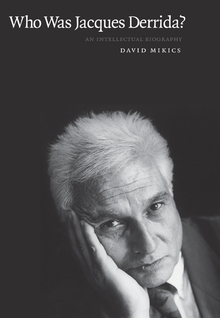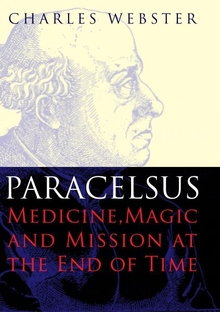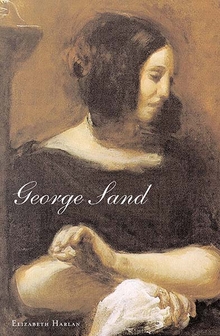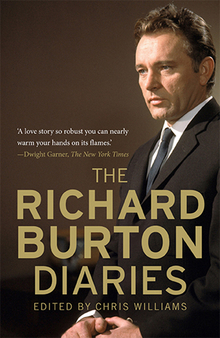The Last Brahmin
WARNING
You are viewing an older version of the Yalebooks website. Please visit out new website with more updated information and a better user experience: https://www.yalebooks.com
Henry Cabot Lodge Jr. and the Making of the Cold War
Luke A. Nichter
The first biography of a man who was at the center of American foreign policy for a generation, The Last Brahmin “sheds insight into the evolving politics of the 20th century.” (Library Journal)
“Comprehensive, . . . dramatic.”—Gerald J. Russello, Wall Street Journal
Few have ever enjoyed the degree of foreign-policy influence and versatility that Henry Cabot Lodge Jr. did—in the postwar era, perhaps only George Marshall, Henry Kissinger, and James Baker. Lodge, however, had the distinction of wielding that influence under presidents of both parties. For three decades, he was at the center of American foreign policy, serving as advisor to five presidents, from Dwight Eisenhower to Gerald Ford, and as ambassador to the United Nations, Vietnam, West Germany, and the Vatican.
Lodge’s political influence was immense. He was the first person, in 1943, to see Eisenhower as a potential president; he entered Eisenhower in the 1952 New Hampshire primary without the candidate’s knowledge, crafted his political positions, and managed his campaign. As UN ambassador in the 1950s, Lodge was effectively a second secretary of state. In the 1960s, he was called twice, by John F. Kennedy and by Lyndon Johnson, to serve in the toughest position in the State Department’s portfolio, as ambassador to Vietnam. In the 1970s, he paved the way for permanent American ties with the Holy See. Over his career, beginning with his arrival in the U.S. Senate at age thirty-four in 1937, when there were just seventeen Republican senators, he did more than anyone else to transform the Republican Party from a regional, isolationist party into the nation’s dominant force in foreign policy, a position it held from Eisenhower’s time until the twenty-first century.
In this book, historian Luke A. Nichter gives us a compelling narrative of Lodge’s extraordinary and consequential life. Lodge was among the last of the well-heeled Eastern Establishment Republicans who put duty over partisanship and saw themselves as the hereditary captains of the American state. Unlike many who reach his position, Lodge took his secrets to the grave—including some that, revealed here for the first time, will force historians to rethink their understanding of America’s involvement in the Vietnam War.
“Comprehensive, . . . dramatic.”—Gerald J. Russello, Wall Street Journal
Few have ever enjoyed the degree of foreign-policy influence and versatility that Henry Cabot Lodge Jr. did—in the postwar era, perhaps only George Marshall, Henry Kissinger, and James Baker. Lodge, however, had the distinction of wielding that influence under presidents of both parties. For three decades, he was at the center of American foreign policy, serving as advisor to five presidents, from Dwight Eisenhower to Gerald Ford, and as ambassador to the United Nations, Vietnam, West Germany, and the Vatican.
Lodge’s political influence was immense. He was the first person, in 1943, to see Eisenhower as a potential president; he entered Eisenhower in the 1952 New Hampshire primary without the candidate’s knowledge, crafted his political positions, and managed his campaign. As UN ambassador in the 1950s, Lodge was effectively a second secretary of state. In the 1960s, he was called twice, by John F. Kennedy and by Lyndon Johnson, to serve in the toughest position in the State Department’s portfolio, as ambassador to Vietnam. In the 1970s, he paved the way for permanent American ties with the Holy See. Over his career, beginning with his arrival in the U.S. Senate at age thirty-four in 1937, when there were just seventeen Republican senators, he did more than anyone else to transform the Republican Party from a regional, isolationist party into the nation’s dominant force in foreign policy, a position it held from Eisenhower’s time until the twenty-first century.
In this book, historian Luke A. Nichter gives us a compelling narrative of Lodge’s extraordinary and consequential life. Lodge was among the last of the well-heeled Eastern Establishment Republicans who put duty over partisanship and saw themselves as the hereditary captains of the American state. Unlike many who reach his position, Lodge took his secrets to the grave—including some that, revealed here for the first time, will force historians to rethink their understanding of America’s involvement in the Vietnam War.
Luke A. Nichter is a professor of history and James H. Cavanaugh Endowed Chair in Presidential Studies at Chapman University. He coedited (with Douglas Brinkley) the New York Times bestselling book The Nixon Tapes: 1971–1972.
“Equal parts statesman and public servant, Lodge sacrificed personal ambition for the good of his country. The Last Brahmin is a worthy endeavor to honor a distinguished figure.”—Henry A. Kissinger, former U.S. Secretary of State
”Combining vast research with a stylish narrative, Luke Nichter reminds us why Henry Cabot Lodge Jr., his life synonymous with the American Century, remains the best in the best and the brightest."—Richard Norton Smith, author of On His Own Terms: A Life of Nelson Rockefeller
"'A nineteenth-century figure dropped into the high-level politics of the more visceral twentieth century.' Luke Nichter in his meticulously researched biography not only gets Henry Cabot Lodge Jr. right. He also brilliantly captures the mismatch between Lodge's patrician persona and the low morass—namely America's Vietnam War—into which he sank. A scholarly yet highly readable tour de force."—Niall Ferguson, author of Kissinger, 1923-1968: The Idealist.
"Luke Nichter, one of America’s leading young historians, restores Henry Cabot Lodge Jr. to his central place in mid-20th-century U.S. history, in shaping both America’s constructive internationalism and its tragic intervention in Vietnam. The Last Brahmin is an impressive achievement."—Thomas A. Schwartz, author of Henry Kissinger and American Power: A Political Biography
“Comprehensive, . . . dramatic.”—Gerald J. Russello, Wall Street Journal
“An essential work. . . . This first dedicated biography of an understudied politician sheds insight into the evolving politics of the 20th century.”—Library Journal
“An in-depth, well-researched look at Lodge and his accomplishments. . . . The Last Brahmin holds lessons for today’s politics. Lodge’s example of service to country and his desire for color-blind equality and emphasis on principled bipartisanship remain relevant today.”—Mark Lardas, Ricochet
“Fill[s] in the blanks on the life of this fascinating man who played a central role in U.S. foreign policy for more than three decades.”—Jessica T. Matthews, Foreign Affairs
Lodge “ensured . . . that the bipartisan consensus that created the post-war order would survive the passage of presidential administrations, and that is no mean legacy. What impresses the modern reader most, however, is Lodge’s commitment to public service above self-interest, examples of which are depressingly few today.”—Tony Hall, Quest
“[An] extraordinary life of Henry Cabot Lodge, Jr., portrayed with great skill, nuance, and sympathy by Luke A. Nichter.”—Benjamin Franklin Martin, Key Reporter
“Luke Nichter paints the picture of a man who seems to be temporally misplaced but at the same time very much of the moment. . . . Lodge had all the genteel mannerisms of a Victorian aristocrat operating in the nuclear age. His sense of comportment and dedication to public service drove Lodge to perform his duty—sometimes at a great personal loss”—Nicholas D. Sawicki, America: The Jesuit Review
ISBN: 9780300217803
Publication Date: September 22, 2020
Publication Date: September 22, 2020
544 pages, 6 1/8 x 9 1/4
31 b/w illus.
31 b/w illus.








